Members of Brigade 444 loyal to Dbeibah. (Agencies)
The Libyan capital holds its breath amid intense fears of a new war outbreak following massive military mobilization between the Prime Minister of the Government of National Unity, Abdul Hamid Dbeibah, and the armed groups loyal to him, mostly from the city of Misrata, and the militias opposing him, foremost among them the so-called “Deterrence Apparatus.”
At the same time, the UN mission races against time to succeed in negotiations overseen and led by Presidential Council Chairman Mohamed al-Menfi, aiming to defuse tensions and restore stability in the city.
According to Al-Nahar’s information, Dbeibah insists on handing over the Deterrence Apparatus’s control of Mitiga Airport, which it controls, including its military base and a prison housing hundreds of criminals and terrorist organization leaders. In contrast, the Deterrence fears that signing the agreement without guarantees for maintaining its influence would lead to losing its leverage, allowing Dbeibah to continue pressuring it, expelling it from the capital, and handing over all its headquarters.
While negotiations were underway behind closed doors to reach an understanding, heavy weapons skirmishes broke out Monday night between armed elements affiliated with the Public Security Apparatus led by the brother of Interior Minister Abdullah al-Trabulsi, known as “Al-Frawla,” accused of violations and looting, and factions of the Deterrence Apparatus stationed in the Gharyan area, reflecting the fragility of the security situation and the possibility of an explosion at any moment. This coincided with violent explosions that shook Misrata following the detonation of a weapons and missile depot in residential neighborhoods.
With ongoing tension and military mobilization, the United Nations Support Mission in Libya warned that any new conflict would not only threaten Tripoli’s security but could spread to other parts of the country. It pointed to progress in talks on security arrangements in Tripoli on several issues concerning the Government of National Unity, calling on all parties to continue dialogue to resolve disputed matters and exercise maximum restraint to avoid escalating tensions or endangering civilians.
Nevertheless, there is a prevailing belief in Tripoli that the current chaos is artificially created by Dbeibah to achieve political gains and that he will not be able to ignite a wide confrontation. Local sources told Al-Nahar that most young people involved in armed groups have become more aware of the cost of clashes, as no budget can cover treatment costs or compensate the injured and missing, weakening the chances of dragging into a new war. The sources also indicate that the Deterrence Apparatus is not just a security force but a deeply rooted social and military institution in Tripoli, enjoying official cover and controlling one of the state’s most sovereign gateways, Mitiga Airport, in addition to managing a prison housing hundreds of extremists and foreigners.
Its social base in Souq al-Jumaa and other western areas grants it strong local legitimacy, making any direct targeting a risky and unpredictable adventure.
Libyan politician Al-Sanousi Ismail warns of “the spark of war igniting at any moment, which would represent the worst scenario for Tripoli.” He told Al-Nahar that “the life of the Libyan citizen has turned into hell, and there is widespread dissatisfaction with the situation and military mobilizations,” noting that the security situation will affect the political process adopted by the United Nations and calling for international intervention, especially by Turkey, given its influence in the security file in the western region. Ismail added, “Amid ongoing negotiations, hope remains pinned on resolving the crisis and preventing losses on both human and material levels.”
Meanwhile, Fathi Al-Shibli, head of the Libyan Parties Coalition, points out that “the UN mission has so far managed to prevent the outbreak of war after negotiations over the past four days.”
Al-Shibli told Al-Nahar he believes “the crisis has been largely resolved, but there is a lack of trust between Dbeibah’s government and the Deterrence Apparatus.” He rules out “fabricating the crisis to sabotage the political solution roadmap, as the problem between the central government and Deterrence began months ago after the liquidation of the head of the Stability Support Apparatus, Abdul Ghani Al-Kikli (Gneiwa). Despite the government’s legitimate demand to fully control the airport, it had to enter negotiations to implement this step.”







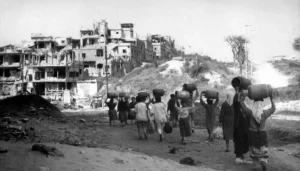
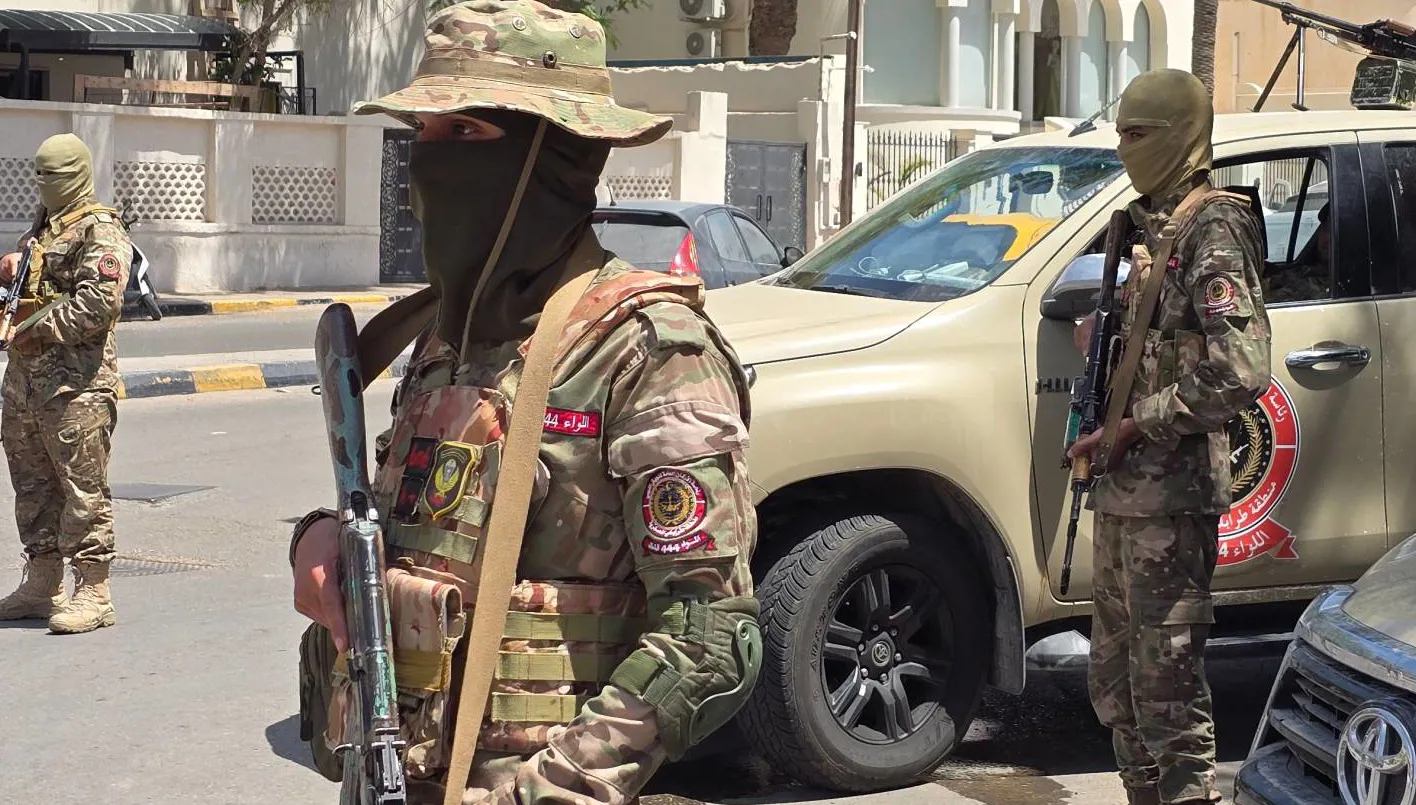
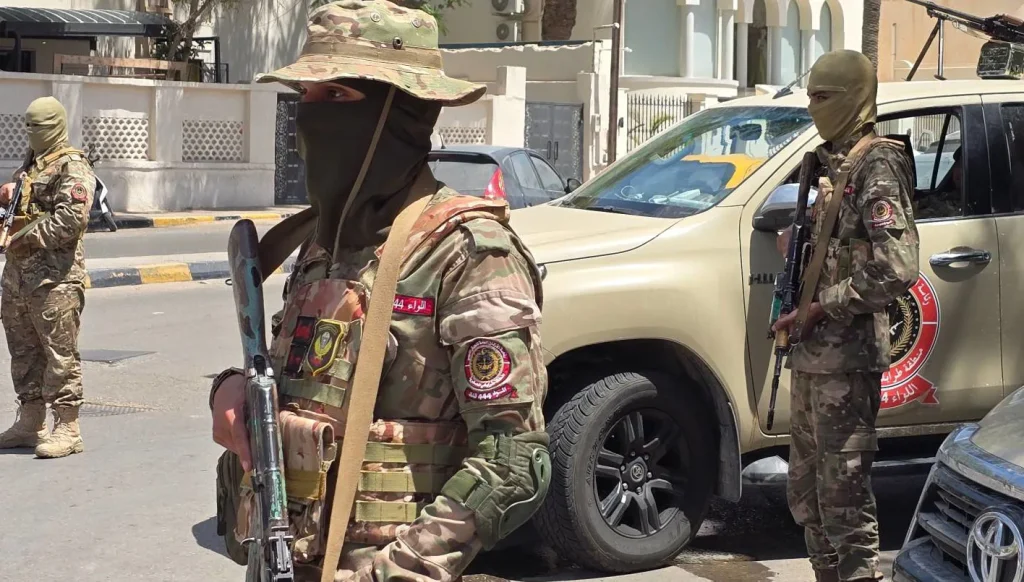
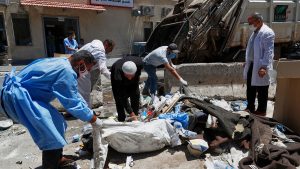
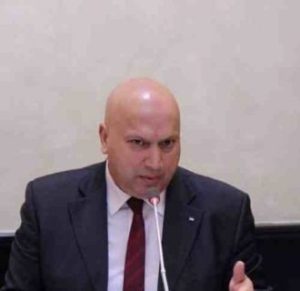

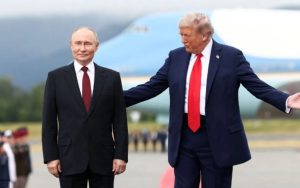
Recommended for you
Exhibition City Completes About 80% of Preparations for the Damascus International Fair Launch
Unified Admission Applications Start Tuesday with 640 Students to be Accepted in Medicine
Talib Al-Rifai Chronicles Kuwaiti Art Heritage in "Doukhi.. Tasaseem Al-Saba"
Al-Jaghbeer: The Industrial Sector Leads Economic Growth
Ministry of Media Announces the 10th Edition of 'Media Oasis'
Afghan Energy and Water Minister to Al Jazeera: We Build Dams with Our Own Funds to Combat Drought